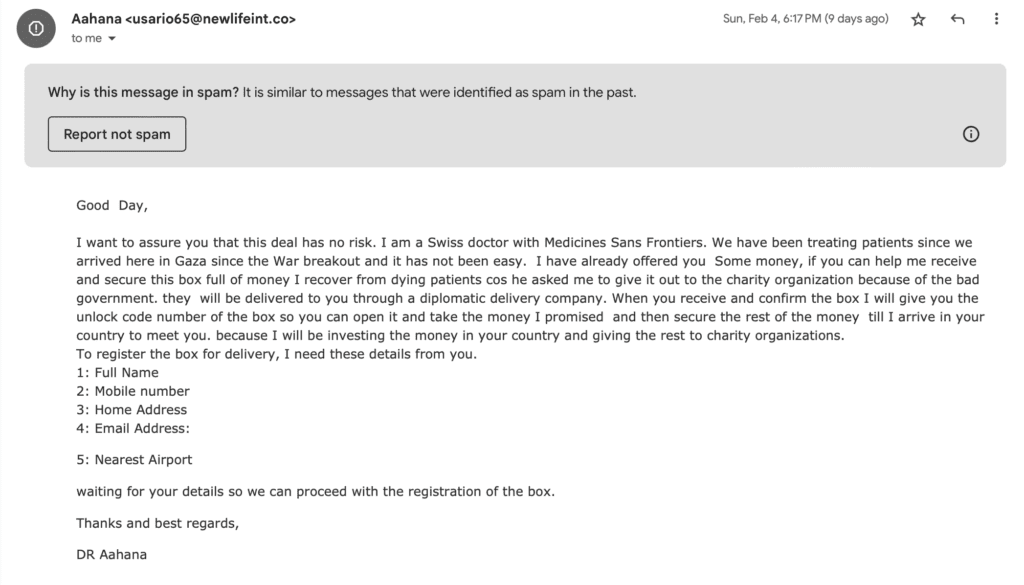Consumer Diary: New Scam Data ’23, Valentine’s Day

Audio By Carbonatix

Valentine's Day bear. Photo credit: Ronni Newton
Consumer columnist and West Hartford resident Harlan Levy has more than 20 years of experience writing stories about everyday experiences that anyone could encounter.
By Harlan Levy
I don’t know why I’m always so surprised by the annual roundup of scams and fraud that consumers suffer. The Federal Trade Commission’s newly released Data Book (Jan. 9) lays it all out – with disturbing increases in one particular category – the top scam of 2023, and proof that scamming is truly big business. Again.
Can you guess last year’s winner? It was disappointedly lucrative, and we all paid for it.
And the winner is …
No, wait. First some facts:
- The Data Book says that people lost $10 billion to scams in 2023 nationally, $1 billion more than in 2022. One in four consumers lost dough to scams. The median loss (number exactly in the middle of the range) was $500 per person.
- Email was the top contact method.
- Now, the answer: IMPOSTER SCAMS were the No. 1 fraud/scam of 2023 – criminals pretending to be a government agency or known business, your bank’s fraud department, a technical support expert, etc., with the goal of ferreting out your key personal information or getting your cash outright.
- Total reported loss [Note the word “reported”]: $2.7 billion.
- Investment-related scams: Median loss: $7,700, up from $5,000 in 2022. $7,700! Any reader have that experience?
- Social media scams: The highest category in total losses – $1.4 billion, up $250 million from 2022. Wait a minute, people. Are you that gullible? Or are these scams insidiously deceptive?
- Scams starting with a phone call caused the highest per-person loss: $1,480.
- Payment: Bank transfers and payments, accounting for the highest losses ($1.86 billion), with cryptocurrency’s reported losses $1.41 billion.
- Losses by age: Younger adults (20-29) reported losing money more often than older adults (70+). But when older adults lost money, they lost the most.

Example of scam email sent to we-ha.com email address. Screenshot
Connecticut data
In 2023, in terms of the number of all frauds last year, New York State was 18th nationally, Connecticut ranked 24th, and Massachusetts was 28th.
Connecticut ranked 24th nationally in total fraud and other reports in 2023, while Massachusetts was 28th, and New York State 18th.
Specific to Connecticut:
- Total fraud and other reports: 33,892
- Fraud losses: $70.6 million
- Median fraud loss: $500 (number exactly in the middle of the range)
Top categories:
- Identity theft: 29%
- Imposter scams: 13%
- Credit bureaus, information furnishers, report users: 9%
- Online shopping, negative reviews: 7%
- Banks, lenders: 5%
- Auto-related: 4%
- Credit card, loss “protection”: 3%
- Healthcare: 2%
- Prizes, sweepstakes, lotteries: 2%
Valentine’s Day disappointment
If you ordered a Valentine’s Day gift for Beloved with guaranteed delivery on or before Valentine’s Day, and your order doesn’t arrive by that guaranteed date, you have rights, the FTC says:
- “By law, sellers must ship your order within the time they say they’ll ship. If they don’t give a specific time, your order must ship within 30 days. When shipping will be delayed, the seller has to let you know about it. Sellers also have to give you the choice to either accept the delay or cancel your order for a full refund.”
Not as good as the gift, but better than nothing, right?
- If you ordered online, you should have researched the seller first. Check company online, search company name plus words “review,” “complaint,” “scam.”
- Check sellers’ refund and return policies before purchase, especially the fine print.
- Use a credit card to buy. It offers the most protection against fraud, including the right to dispute charges.
- Save receipts, confirmation emails for refund requests, disputes.
Hope you have a Valentine and get the Valentine request you desire 
Like what you see here? Click here to subscribe to We-Ha’s newsletter so you’ll always be in the know about what’s happening in West Hartford! Click the blue button below to become a supporter of We-Ha.com and our efforts to continue producing quality journalism.




